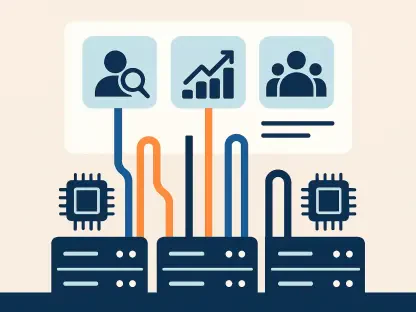In 2025, the integration of artificial intelligence within customer support has matured to a point where AI tools no longer threaten to replace human roles; instead, they enhance and redefine these roles toward greater efficiency and satisfaction. The narrative has shifted from viewing AI as a potential job eliminator to understanding it as a collaborative partner that empowers human agents. Businesses across various industries are discovering that AI can augment human capabilities, refine customer interactions, and streamline support processes. By addressing repetitive tasks and predictive requirements, AI allows human agents to manage more nuanced and complex interactions with customers. As AI undertakes routine inquiries and basic troubleshooting, human representatives can focus on crafting meaningful dialogues, fostering deeper connections, and delivering personalized solutions. This approach reflects a growing trend among companies that acknowledge the necessity of a balanced, human-centric service enhanced by intelligent technology applications.
Enhancing Customer Responsiveness and Personalization
The application of AI in customer support has revolutionized responsiveness by instantly identifying and addressing issues with unparalleled efficiency. Through analyzing large datasets and historical interactions, AI determines the best course of action, such as routing inquiries to appropriately skilled agents or providing immediate solutions to straightforward problems. This predictive capacity enables organizations to prioritize tasks in real time according to urgency and relevance, ensuring that customer concerns are promptly addressed. Personalization is another dimension where AI excels, tailoring interactions based on individual preferences, behaviors, and history. By accessing comprehensive customer profiles, AI can offer insights that elevate the quality of service, enabling agents to deliver targeted solutions and fostering a sense of care and consideration. This personalized service not only enhances customer satisfaction but also builds loyalty, as clients feel valued and understood through interactions that respect their unique needs and circumstances.
Streamlining Processes with Automation
Automation facilitated by AI plays a critical role in optimizing customer support operations by managing routine and redundant tasks. AI-powered chatbots and virtual assistants handle frequently asked questions, process standard requests, and initiate back-end operations without requiring human intervention. This delegation of repetitive tasks allows human agents to focus on complex queries that demand their judgment and empathy. These AI systems enhance operational efficiency, ensuring that support teams can manage an ever-increasing volume of requests without compromising on quality. Moreover, AI-driven automation extends to enhancing self-service options, where intuitive interfaces and predictive analytics aid users in resolving their own inquiries. By transforming static FAQ sections into dynamic and interactive tools, AI ensures user autonomy, reducing frustration and minimizing the need for escalation. The empowerment of both customers and human agents through AI-driven process optimization represents a significant step forward in modern customer support environments.
Analyzing Data for Strategic Insights
AI’s ability to process and analyze massive volumes of data translates into valuable insights for customer support teams, bolstering strategic decision-making and process refinement. By identifying service trends, common pain points, and emergent shifts in consumer sentiment, AI enables organizations to anticipate future needs and proactively address issues. Patterns detected through AI analytics guide product development, policy changes, and training programs, ensuring that support teams are prepared for evolving demands. Furthermore, AI technologies provide crucial feedback loops, where customer interactions generate detailed reports that can be strategically reviewed for performance adjustments. This continuous feedback mechanism allows support leaders to enhance training, refine strategies, and implement improvements that maintain high service standards. The capability to convert raw data into actionable insights empowers companies to remain agile, adaptive, and conscious of the shifting dynamics within their consumer base.
Balancing Automation and Human Expertise
Central to the effective deployment of AI in customer support is maintaining a balance between automation and the irreplaceable elements of human interaction. Companies are tasked with defining clear pathways where AI and human intelligence intersect, ensuring that each role complements the other without undermining its unique value. While AI handles logistical aspects and data-driven tasks, human agents bring creativity, emotional intelligence, and adaptability to the table. This harmonious coexistence moves beyond reducing operational inefficiencies; it fosters a culture of collaboration between technology and humanity toward achieving exceptional service delivery. Designing processes that leverage both AI capabilities and human expertise not only strengthens customer relationships but also instills confidence in human agents, who are now free to tackle more challenging scenarios. As businesses continue to refine this partnership, it becomes evident that the symbiotic relationship between AI and human agents is instrumental in shaping the future of customer support.
Future Considerations and Innovations
In 2025, the integration of artificial intelligence in customer support has evolved significantly. AI tools are now seen as collaborators rather than threats to human jobs, enhancing and redefining roles to improve efficiency and satisfaction. The narrative has shifted, with AI now viewed as a partner that empowers human agents rather than a job eliminator. Across industries, businesses find AI beneficial in boosting human capabilities, refining customer interactions, and optimizing support processes. It tackles repetitive tasks and predictive requirements, enabling human agents to handle more complex interactions. AI manages routine inquiries and basic troubleshooting, freeing humans to engage in meaningful dialogues and deliver personalized solutions. Companies increasingly recognize the importance of a balanced, human-centric service empowered by intelligent technology applications. This trend underscores the necessity of blending human interaction with technology to create more fulfilling customer experiences, fostering deeper connections and providing tailored solutions.









